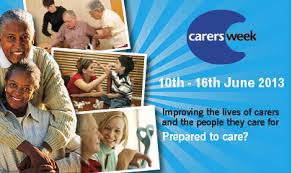 There are 6.5 million carers in the UK and 6,000 people take on a new caring role every single day. Findings from the report, Prepared to Care? show that vital support is not being made available to new carers from the outset.
There are 6.5 million carers in the UK and 6,000 people take on a new caring role every single day. Findings from the report, Prepared to Care? show that vital support is not being made available to new carers from the outset.
My experience as an MS support volunteer has brought me into contact with many people who care for someone with MS. Their stories are all different, but there is one recurring theme – their isolation and lack of joined-up support. They feel they have to fight their way through a complex, bewildering system and are unable to access all the services they need to support them in their role.
81% of carers in the report felt unprepared for the emotional impact of caring and 71% were unprepared for the change in relationship with the person they care for. I have a friend who often feels that the entire focus of support is for his partner, who has primary progressive MS that has left her housebound. They live in purpose-built accommodation, which although ideal for his partner, is unsuitable for him as it is far from transport links and shops.
The only respite he has is when a paid carer comes in for two hours a day, but as he explained, by the time he walks to the bus stop and goes to town, he has to turn round and go home again. He has also had to give up work, as 45% of carers find they have to do to continue in their role as a carer. He now leads a very lonely, isolated life and although he adores his partner, he feels increasingly frustrated.
92% of carers feel more stressed because of their caring role, a damning statistic, and one that can only be reduced by providing good quality practical and emotional support. ‘Prepared to Care’ recommends that there should be better public understanding and recognition of carers and that they should have access to information and the right support from the very beginning.
Carers are the forgotten heroes. Perhaps we feel it will never happen to us, but anyone can become a carer and most of us will not be prepared.
